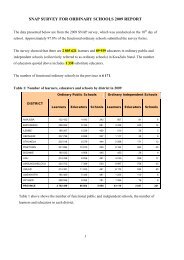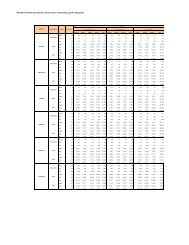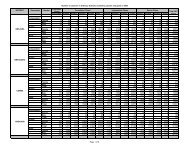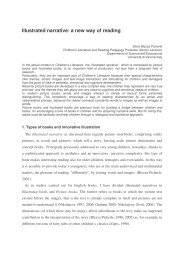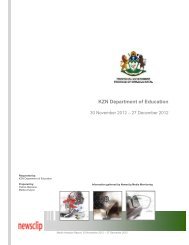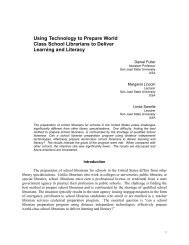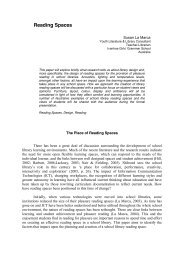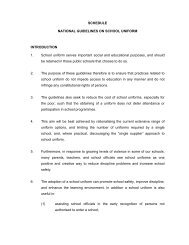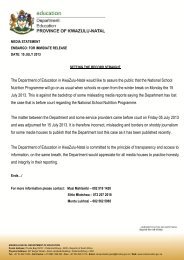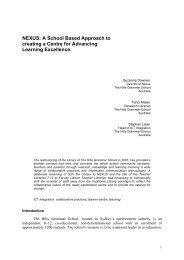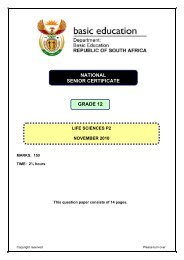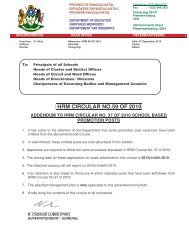GUIDELINE FOR TEACHING AND WRITING ESSAYS ... - Thutong
GUIDELINE FOR TEACHING AND WRITING ESSAYS ... - Thutong
GUIDELINE FOR TEACHING AND WRITING ESSAYS ... - Thutong
Create successful ePaper yourself
Turn your PDF publications into a flip-book with our unique Google optimized e-Paper software.
Friendly/ Informal letter<br />
Friendly/ Informal letters are usually written to people who are close to the writer, e.g. friends,<br />
family, etc. They mainly written to express an emotion, e.g. congratulate, sympathise, advise,<br />
etc. the recipient. Due to the nature of the relationship between the writer and the recipient,<br />
the language register and style, among others, differ from those of the formal letter.<br />
• Style<br />
Like the formal letters, informal letters must also be written in simple English.<br />
However, the writer may elaborate a little on a point, for example, reminding the<br />
recipient about a shared moment that might have partially led to the letter being<br />
written. While there is a restriction on the number of words, the writer is allowed a<br />
little flamboyance. Informal letters are, as a result, livelier than formal letters.<br />
The letters should, nonetheless, be logical and pursue the intended point to the end.<br />
• Structure<br />
‣ All letters should have an introduction, a body and a conclusion.<br />
‣ There must be only one address, the writer’s, with a date in which it was<br />
written below it;<br />
‣ An informal/semi-formal salutation – Dear Jerry, Dear Aunt Juliet, Dear<br />
Father and Mother, etc. - follows the writer’s address;<br />
‣ The language register is mainly informal, but could be semiformal to formal,<br />
depending on who the recipient is. For example, the writer will use a different<br />
register when writing to parents compared to that used when writing to a<br />
friend;<br />
‣ The conclusion ranges from informal to semi-formal – Yours sincerely; Your<br />
loving son; etc – followed by the writer’s first name.<br />
• Issues to avoid<br />
While the language register is more relaxed than in the informal letter, the following still<br />
have to be avoided:<br />
‣ Slang and colloquial language;<br />
‣ Contractions, abbreviations and acronyms;<br />
‣ Innovations as used in sms and mxit texts; and,<br />
‣ Foul language.<br />
11



